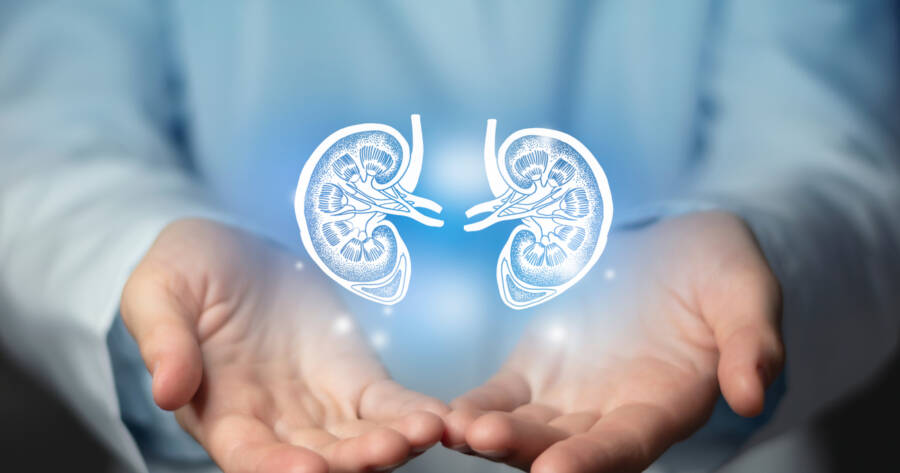Creatinine, a waste product from muscle metabolism, is filtered out by the kidneys, and understanding it is crucial for maintaining good kidney health. Fortunately, you can learn about normal creatinine levels with a quick search online.
It’s time to explore the importance of creatinine, how to interpret its levels, and ways to manage and improve these levels. By arming yourself with the right knowledge, you can optimize your kidney health now and long into the future.
Understanding Creatinine and Its Importance
Creatinine is more than just a number on your medical reports; it’s a key indicator of kidney function. Produced by muscle metabolism, it’s filtered out of the blood by the kidneys and excreted in urine. Healthy kidneys maintain creatinine levels within a normal range, which varies slightly based on age, gender, and muscle mass.
High levels can indicate kidney impairment, while extremely low levels might suggest reduced muscle mass. Understanding these nuances is critical for interpreting what your creatinine levels mean for your health.
How to Interpret Creatinine Levels
Interpreting creatinine levels requires considering several factors, including age, gender, muscle mass, and ethnicity. Generally, the normal range for men is 0.6 to 1.2 mg/dL, and for women, it’s 0.5 to 1.1 mg/dL. However, these ranges can vary slightly among laboratories.
It’s also important to consider that muscular individuals might naturally have higher creatinine levels due to more muscle mass. Consistently high levels are a red flag for kidney dysfunction, prompting further medical evaluation.
Factors Affecting Creatinine Levels
Various factors can influence creatinine levels. These include muscle mass, medication, hydration status, and kidney health. High-protein diets and intense physical activity can temporarily increase levels, while certain medications might either raise or lower them.
Chronic conditions like hypertension and diabetes can also affect kidney function and, consequently, creatinine levels. Understanding these factors is crucial for correctly interpreting creatinine readings and taking steps to manage them.
Dietary Considerations for Managing Creatinine Levels
Diet plays a pivotal role in managing creatinine levels. Reducing protein intake, especially from red meat, can help lower levels, as protein metabolism contributes to creatinine production. Incorporating more plant-based proteins, fruits, and vegetables can be beneficial. It’s also essential to stay hydrated, as dehydration can lead to increased creatinine.
However, excessive water intake isn’t recommended, especially if kidney function is impaired. Consulting a dietitian or a healthcare provider is advisable for personalized dietary guidance.
Lifestyle Changes to Improve Creatinine Levels
Lifestyle modifications can significantly impact creatinine levels. Regular exercise is beneficial, but it’s important to avoid extreme physical exertion, which can temporarily raise creatinine.
Maintaining a healthy weight, managing blood pressure and blood sugar levels, and avoiding nephrotoxic substances like certain medications and alcohol can also help keep creatinine levels in check. Remember, gradual and sustainable changes are more effective than drastic, short-term adjustments.
When to See a Doctor
Regular check-ups are crucial for monitoring creatinine levels, especially if you have risk factors like diabetes, hypertension, or a family history of kidney disease. If you notice a sudden increase in creatinine levels or experience symptoms like fatigue, swelling, or changes in urination, it’s important to consult a healthcare provider. Early detection and management of kidney issues can prevent further complications.
The Role of Hydration in Creatinine Levels
Proper hydration is essential for maintaining normal creatinine levels. The kidneys require adequate water to efficiently filter waste products, including creatinine. Dehydration can lead to elevated creatinine levels, as the concentration of waste in the blood increases.
However, it’s important to balance your water intake, especially if you have kidney issues. Overhydration can strain compromised kidneys. The key is to drink enough water to keep your urine light yellow, indicating proper hydration.
Managing Underlying Health Conditions
Many health conditions, like diabetes and hypertension, can impact kidney function and creatinine levels. Managing these conditions through medication, diet, and lifestyle changes is vital for maintaining kidney health.
Regular check-ups and following your healthcare provider’s advice are key to preventing complications that could affect your kidneys. Be proactive, stay engaged, and embrace a healthier lifestyle.
Learn More Today!
Normal creatinine levels are a sign of healthy kidney function, and understanding how to achieve and maintain these levels is crucial for overall health and longevity. From interpreting your creatinine levels to making dietary and lifestyle changes, this guide provides a comprehensive overview of managing kidney health.
Remember, individual factors like age, gender, and health conditions play a significant role, so personalized advice from healthcare professionals is invaluable. Continue exploring online resources to deepen your understanding and stay proactive in managing your kidney health.
